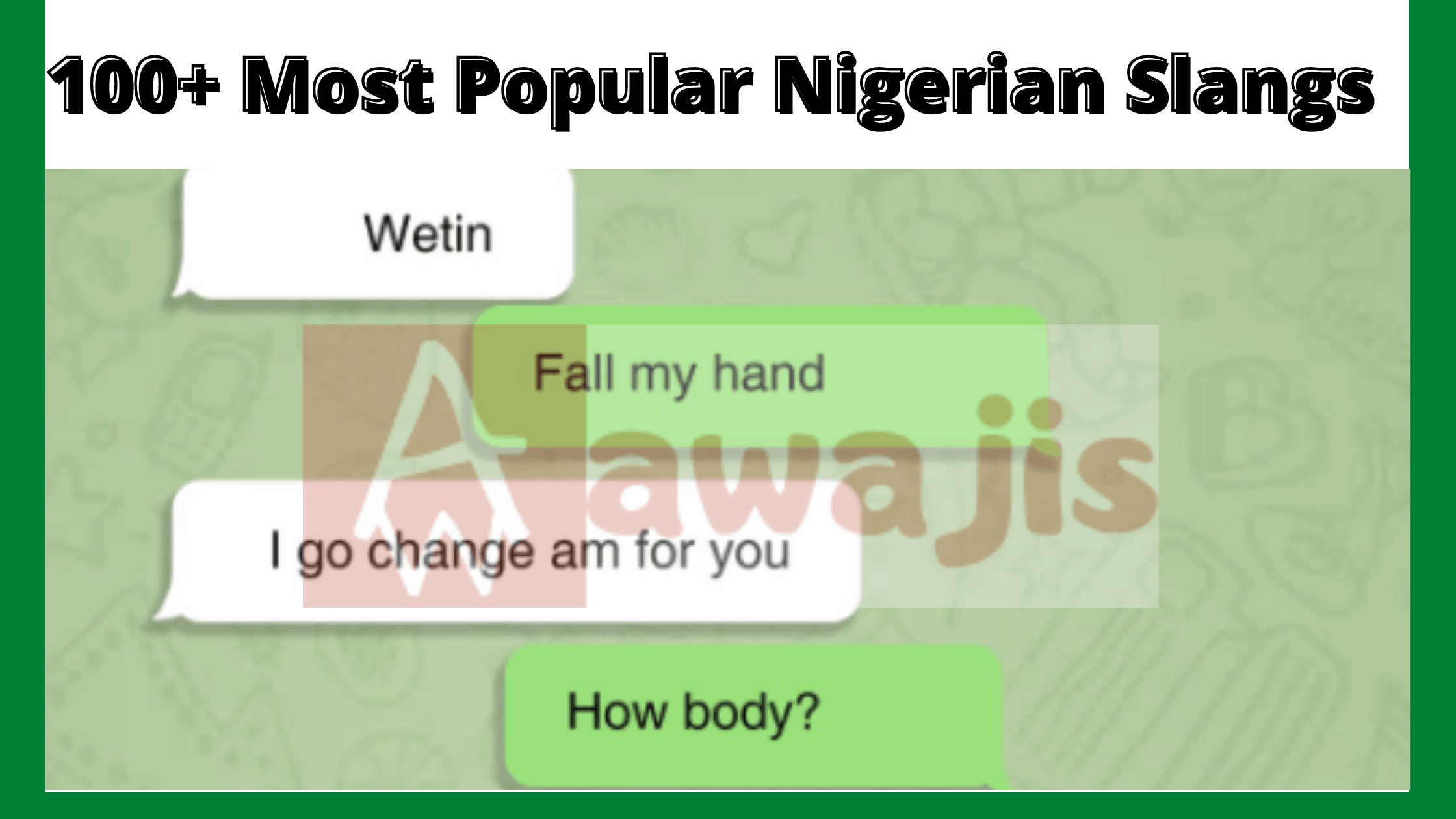Nigeria is a vibrant country known for its diverse tribes, each with unique cultures and traditions. This diversity extends to the way people communicate, particularly through the use of slangs and codes that can leave those outside the culture feeling perplexed. Within Nigeria, these slangs have gained popularity, becoming a common part of everyday conversation and helping to bridge the linguistic gap between various tribes.
Pidgin English serves as a unifying language for many Nigerians, acting as a "break-even" language that allows people from different tribes to communicate effectively. Often referred to as broken English, it is rooted in English but has evolved to incorporate local dialects and expressions. While some may believe that Pidgin is exclusive to certain regions, such as Warri, it is widely spoken across the country in urban centers like Lagos, Abuja, and Port Harcourt.
In this article, we will delve into some of the most popular Nigerian slangs, exploring their meanings and contexts. From playful phrases to cautionary warnings, these expressions offer a glimpse into the rich linguistic tapestry of Nigeria and demonstrate how language evolves within a cultural framework. Let's take a closer look at some of these fascinating slangs!
What You Will Learn
- Understanding the significance of slangs in Nigerian culture
- How Pidgin English facilitates communication across diverse tribes
- The meanings and usage of popular Nigerian slangs
- The role of cultural context in interpreting slang phrases
Nigerian slangs are more than just words; they reflect the identity and experiences of the people who use them. For instance, phrases like "Fall my hand" convey a sense of disappointment, while "I go change am for you" serves as a warning to others. Understanding these slangs enhances one's ability to engage with the local culture and appreciate its nuances.
Moreover, Pidgin English enables individuals from various tribes to connect and share experiences without the barriers of language. In a country where over 500 languages are spoken, Pidgin acts as a common ground, fostering unity and understanding among diverse groups. As we continue to explore these slangs, we will also highlight how they enrich conversations and reflect the everyday realities of Nigerian life.
Now, let's dive into specific slangs and their meanings!
- Fall my hand - A phrase used to express the fear of disappointment. For example, if someone says, "No go fall my hand," they are asking not to be let down.
- I go change am for you - Often a warning, this phrase suggests that the speaker might retaliate or become upset if provoked.
- Pepper don red - This slang indicates that someone has experienced a positive change in fortune, often implying newfound wealth.
- Baff up - A compliment used for someone who is well-dressed or stylish.
- Bust my skeroo - An expression of amazement or being blown away by something impressive.
- Yan - Means to talk or chat; often used inquiringly, such as "Wetin you dey yan?" (What are you talking about?).
- Crash - In Pidgin, this means to sleep or take a nap.
- You dey kolo - A playful way to suggest someone is acting crazy.
- Yanga or effizy - Refers to someone being showy or acting pompously.
- Fabu - This slang means lie; typically used to call out someone who is not being truthful.
As we continue exploring Nigerian slangs, we will reveal more phrases and their meanings, providing insight into the cultural context that shapes their use.




